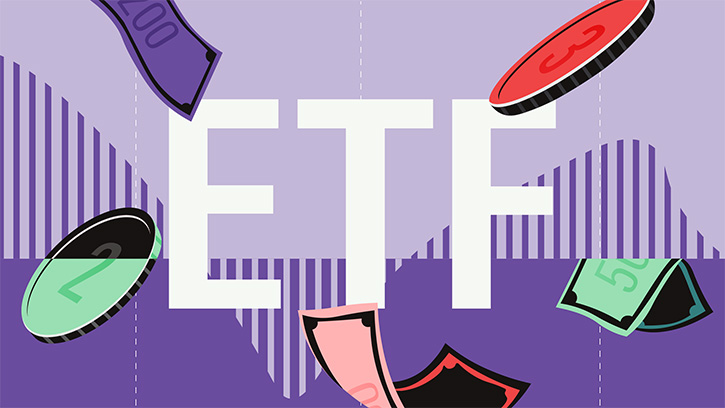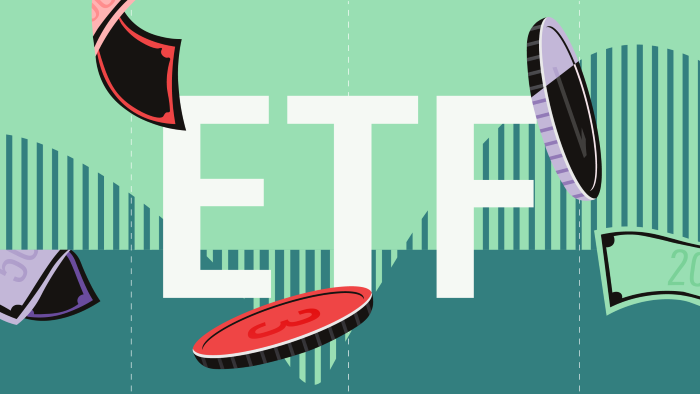
The European asset management industry has changed dramatically over the past decade and the ETF boom has been a key driver.
So are ETFs really taking over the European asset management industry? Morningstar data tells us that as of December 31 2023, only 26.7% of total assets under management in Europe were attributable to passive strategies that replicate a benchmark (the universe considered includes open-ended funds and ETFs, while excluding money market funds and funds of funds).
This has doubled from 10 years ago, when the passive market share was 12.3% of the total.
And where the US leads, Europe will surely follow: in the United States passive assets have for the first time in history surpassed those actively managed in the fund industry as a whole (50.02% vs. 49.98%, respectively, at the end of January 2024).
While Europe seems far from the levels just reached in the US, this epochal change may be happening faster than one might think. The analysis of asset flows and, above all, of the organic growth of passive versus active strategies confirms the absolute preference of investors for the former (organic growth measures the percentage incidence of net flows in a given period with respect to initial assets).
The organic growth rate of passive funds – of which the vast majority are ETFs – was higher than that of active funds every single year from 2014 to 2023. In the last two years in particular, active management has suffered greatly, recording net outflows.
ETF Boom: Price War and Flexibility
The exchange traded fund (ETF) boom in Europe began with the financial crisis of 2008. I remember it well: I joined Morningstar's editorial team in 2009 and one of my first assignments was to cover these 'new' instruments (they were not so new, the first ETFs appeared in Europe in 2000) that were gaining favour with institutional and retail investors, thanks to their transparency, ease of use and, above all, low costs.
Since then, ETF fees have continued to fall (remember the so-called price war of 2018-2019?), to as low as a few basis points in some cases.
In the beginning, ETFs were mainly used to gain exposure to market pockets hitherto precluded to individual investors (typically commodities, such as oil and gold) and major global equity indices. Over time, however, exchange traded funds have also become an increasingly credible option for those looking at allocation and especially bond investments, particularly for the core component.
Bond Funds Go Passive, Join ETF Rush
Taking a closer look at the asset class level, the weight of passive management has grown everywhere. If in commodities, dominated by instruments such as ETCs, the 83% share of passive assets is not surprising, but the growth of the index component among equity and especially bond funds confirms a clear preference on the part of investors.
The difference between 10-year organic growth of passive and active funds is in any case in favour of the former and particularly strong between equities (7% vs. 154%) and bonds (52% vs. 328%).
So let's look in more detail at which Morningstar categories (equities and bonds) are dominated by passive strategies in the tables below.
Global emerging market equity funds are a recent notable example; here the passive component marked a 10-year organic growth of 253% against the -7% of active funds. Or we could look at sector equity energy funds, where passive assets grew from 19% of the total at the end of 2014 to 57% at the end of 2023. Another interesting case, not included in the table, concerns a field traditionally dominated by active stock-pickers, that of small-cap US equity funds, where passively managed assets rose from 9 to 27 per cent over the same time period.
Even within the fixed income universe, as we see, there are categories dominated by ETFs, such as those dedicated to US Treasuries or UK government bonds. Also noteworthy here are global bond funds, in which the passive component has risen from 11 to almost 50% of total assets over the past 10 years. An important category such as euro government bonds also has 41% of its assets managed by trackers (up from 29% some 10 years ago).
ETFs are Winning But Active Management Fights Back
At this point, however, I think it is important to make one thing clear: in this analysis we are dealing with aggregate data and therefore drawing general conclusions. Although our Active/Passive Barometer has shown for years now that the majority of active managers are unable to beat their benchmark, it would be wrong to take the above numbers as a recommendation to "always go passive" or to think that active management is destined to disappear, especially in certain investment types.
Those (few) quality active managers will always be able to generate value for investors. It’s important to be aware that beating the market over the medium to long term is difficult and that identifying the managers who can actually generate alpha in that particular category is vital.
As was well explained by my colleague Johanna Englundh in this article, a world without active managers would be boring, and perhaps even dangerous.







.jpg)




















